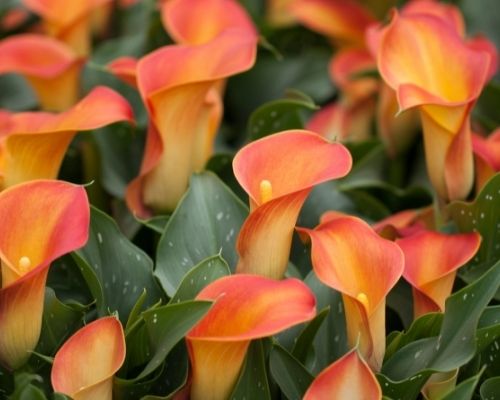Your Guide to Planning, Planting, and Growing Calla Lilies
Calla lilies are easy to grow and add a classy look to perennial gardens, cutting gardens and container plantings. The distinctive flowers come in many beautiful colors, including classic white (a favorite for weddings), yellow, orange, pink, rose, lavender and dark maroon.
The plants have smooth, sword-like foliage that's often decorated with white freckles. Calla lily foliage looks neat and attractive all season long, both before and after the flowers bloom. Whether in the garden or in a vase, fresh calla lilies are always impressive.
Start with a Better Plant
It’s easy to see differences in quality when you compare two calla lily rhizomes side by side. Newly harvested rhizomes are graded by circumference. A large, 14/16 cm rhizome (shown at far left) will grow into a bigger plant with a more impressive display of flowers.
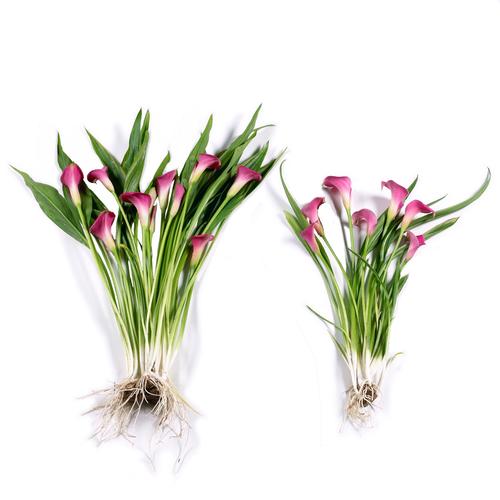
Plan for Success
Calla lilies are easy to grow. Here’s how to get them off to a great start.
Shade and Sun: In warm climates, calla lilies grow well in full sun or partial shade. In cooler areas they grow best in full sun.
Zone: Calla lilies are winter hardy in zones 8-10. In colder areas they can either be grown as annuals or can be dug up in the fall and stored indoors for replanting the next spring. Reference the USDA Hardiness zone map here.
When to Plant: Calla lilies should be planted in the spring after all danger of frost has passed. In cold climates it's best to wait until the soil has warmed to at least 65°F. For a head start, you can plant the rhizomes in pots indoors about a month before planting them into the garden.
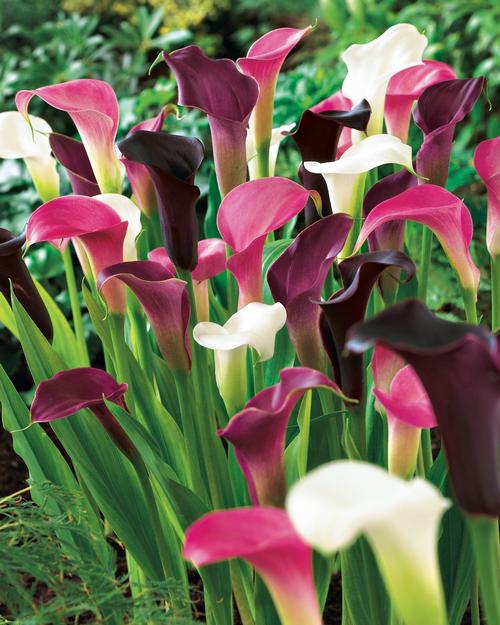
Where to Plant Calla Lilies
Flowerbeds and Borders: Depending on the cultivar, calla lilies grow between 1 and 2 feet tall. This makes them a great choice for the front or middle of a flowerbed. The speckled foliage looks attractive all season long.
Cutting Gardens: Calla lilies are terrific cut flowers. They are easy to arrange and can last for up to two weeks in a vase. Planting callas in a cutting garden allows you to grow a wide range of different colors and have plenty of flowers for bouquets.
Containers: Calla lilies grow well in pots and planters. They can be mixed with other annuals, but usually perform better in a pot on their own. The flowers last for weeks.
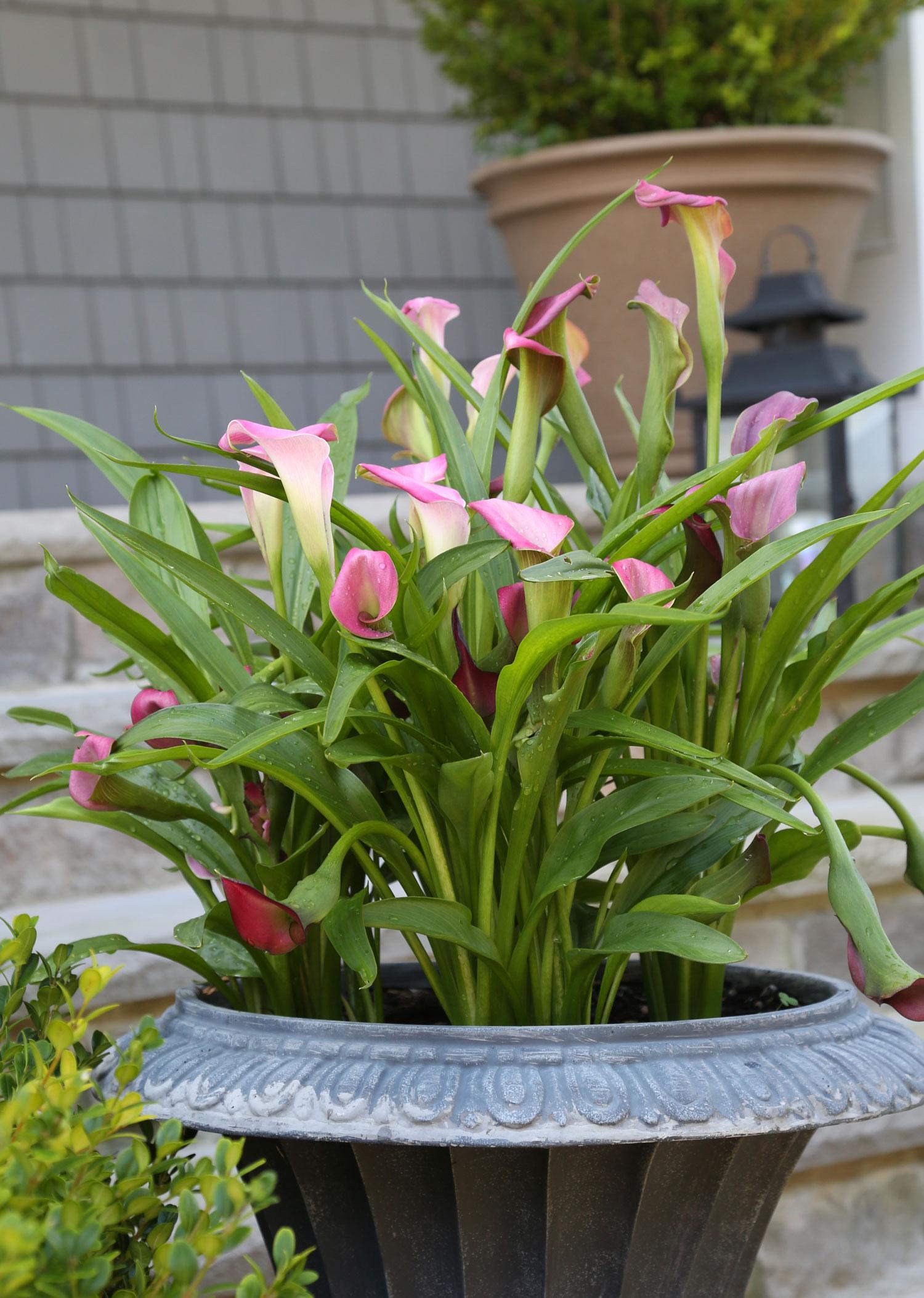
How to Plant Calla Lilies
Dig a hole 3” to 4" deep.
Set the rhizome into the hole with the “eyes” (growing tips) facing up.
In the garden, you can space calla lilies about 6” apart on center. In containers they look best planted more closely (4" on center).
Cover the rhizome with soil and water lightly.
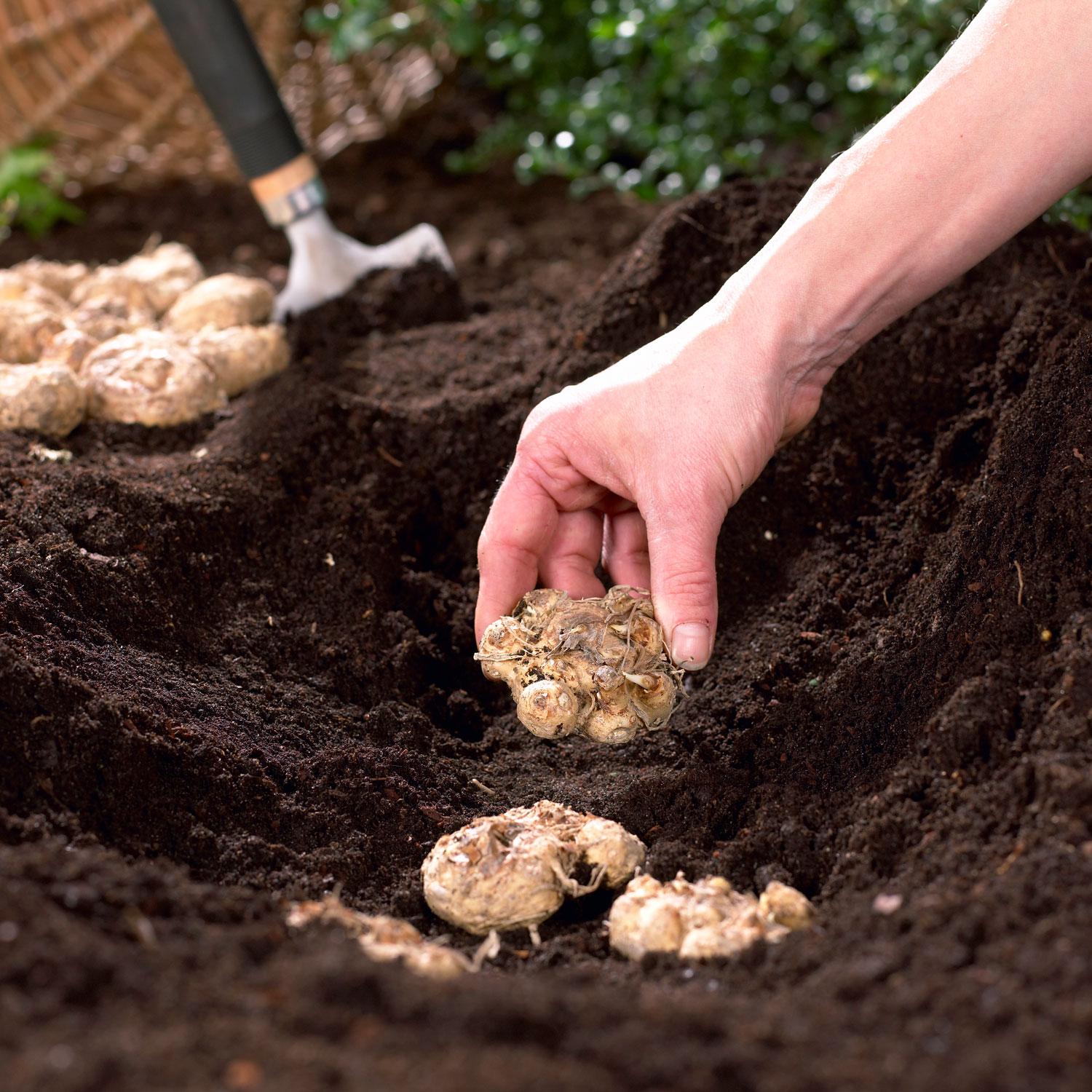
Planting Tips for Calla Lilies
As with most plants, calla lilies should be grown in well-drained soil. If you are planting them in containers, use a quality growing mix rather than garden soil.
When the rhizomes are first planted, it’s important to water sparingly. Once the plants have a few leaves, you can begin watering more generously.
What to Expect
After planting, it may take 2 weeks or more for the first calla shoots to appear. Once this happens, the plants grow quickly.
In warm climates where calla lilies are perennial, the plants typically flower in early summer. When calla lilies are planted in the spring, flowering is usually delayed until late summer.
During the growing season, calla lilies appreciate a monthly dose of liquid fertilizer. This is especially important when they are grown in containers.
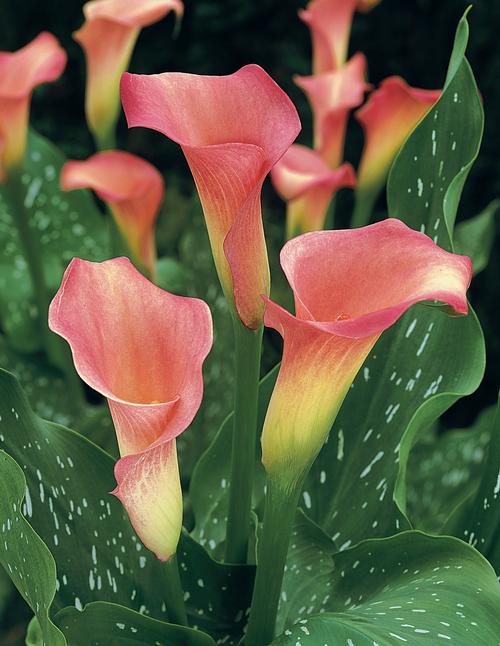
Caring for Calla Lilies After They Bloom
In climates where calla lilies are winter hardy (zones 8-10), the rhizomes may be left in the ground to bloom again the next summer. If flowering decreases over time, dig and divide the rhizomes to restore vigorous growth.
In cooler areas (zones 3-7), calla lilies are usually treated as annuals, with new bulbs planted each spring. Alternatively, the rhizomes may be overwintered indoors, though flower production may be diminished the second year.
If want to try saving your calla lilies for next year, here's what to do. Fertilize the plants throughout the growing season. Cut off the flower stems as soon as the blooms fade. This will prevent the plants from setting seed and help conserve energy for next year’s flowers. Continue fertilizing until the foliage begins to yellow.
After the leaves have died back, or after the first frost, dig up the rhizomes and trim off the foliage, leaving an inch or two of stem attached. Let the rhizomes cure in a warm, dry place for several days and then put them into a box with barely damp peat moss. Store the box in a dark place at 50-60°F. Check once or twice during the winter to make sure the rhizomes are not too moist (rotting) or too dry (shriveling). Replant in spring.
Learn more here: Best Summer Bulbs for Containers, How to Grow Summer Bulbs in Containers, How to Keep Container Plants Looking Their Best, Top Summer Bulbs for Cutting Gardens.
Ready to plant some calla lilies? Shop HERE.


